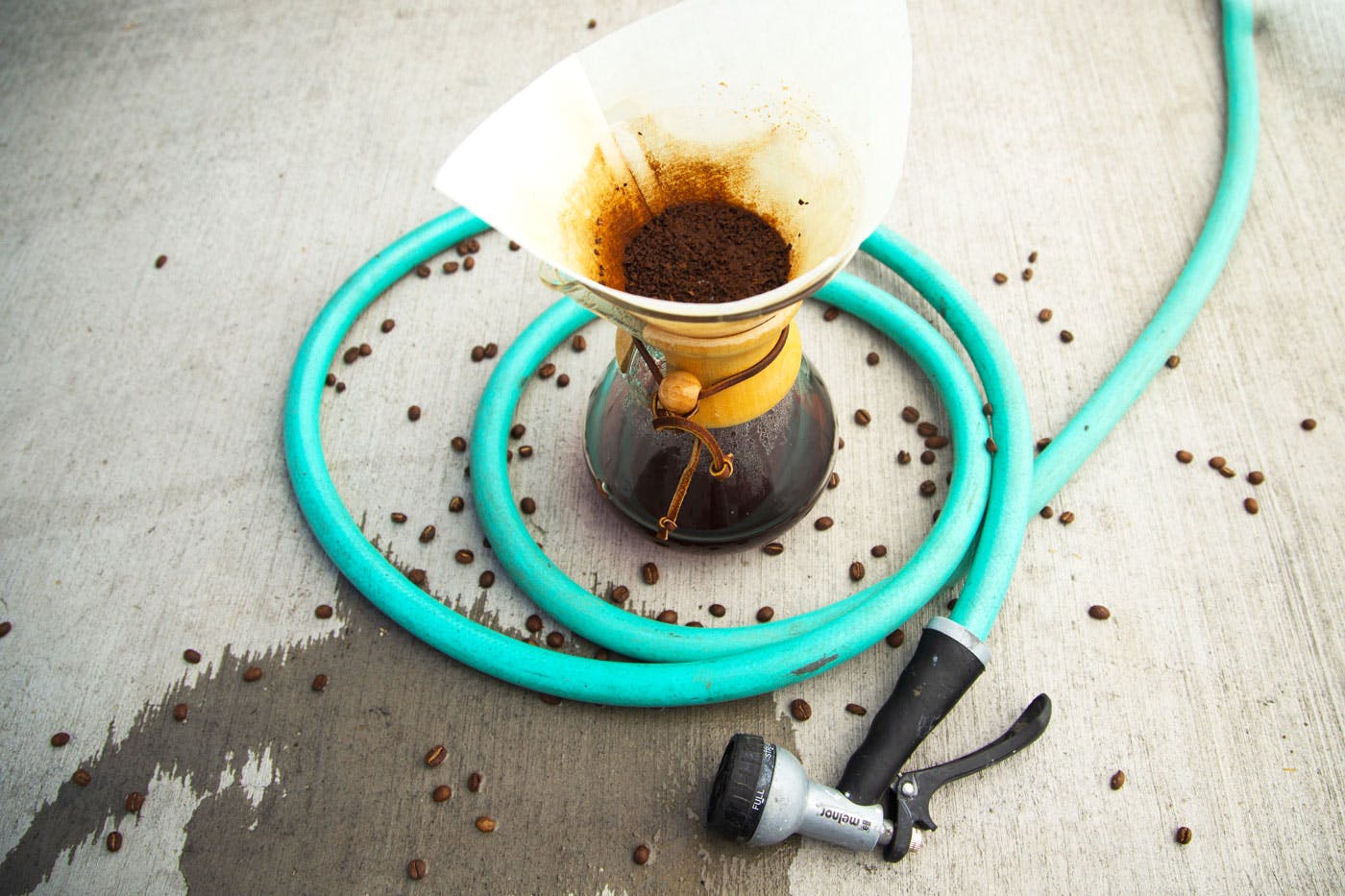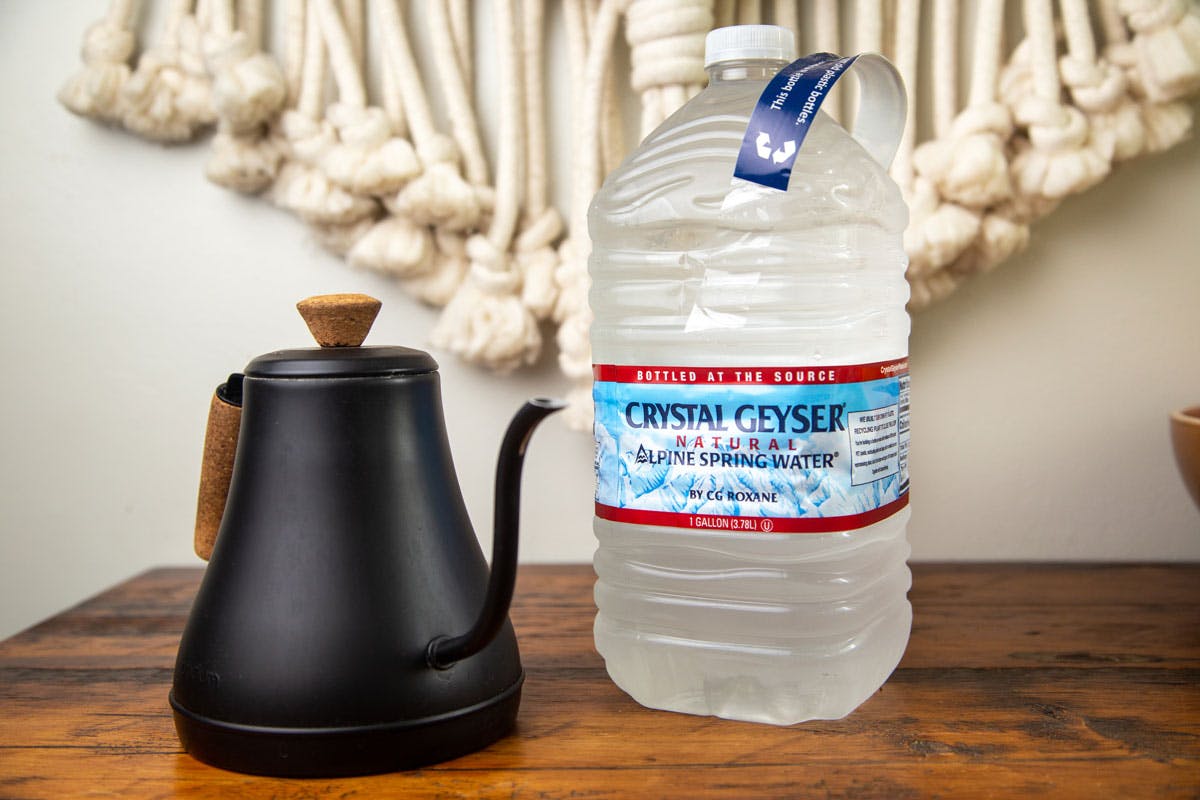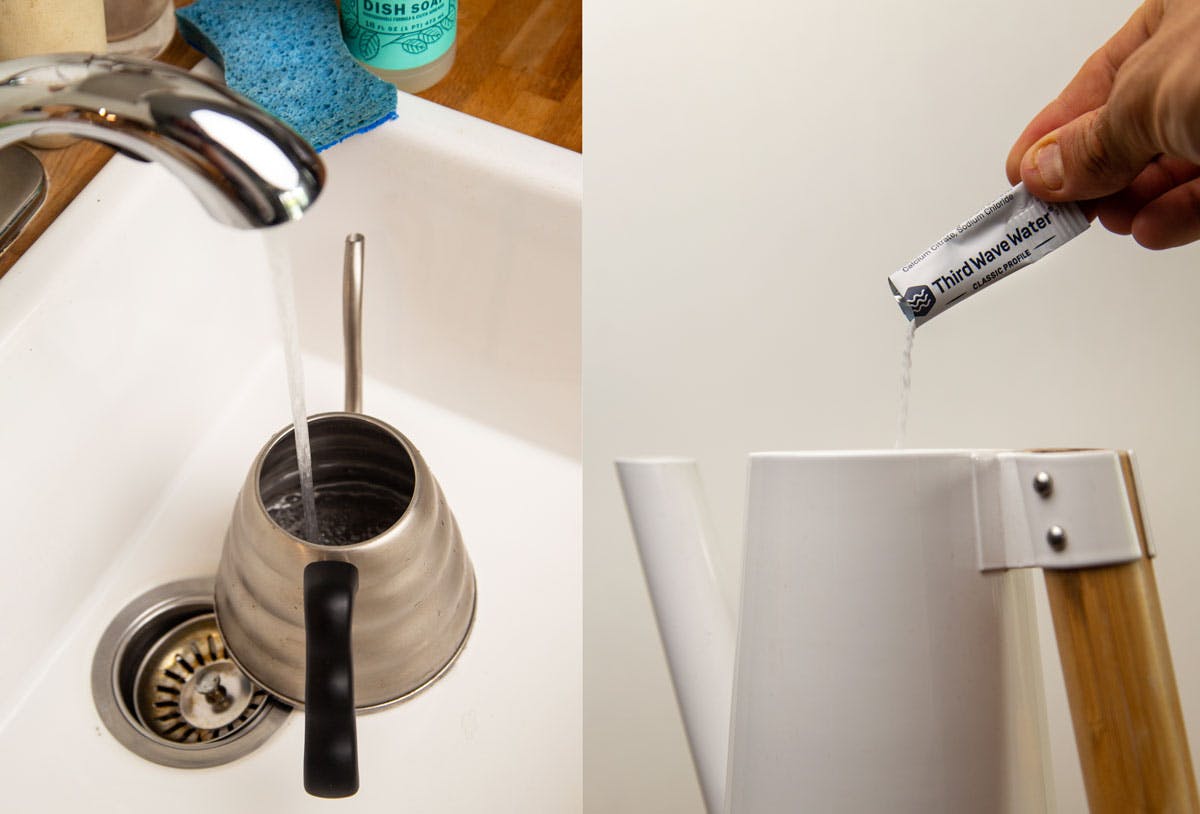SHARE
What’s the right water for brewing coffee?

How important is water quality to making a great cup of coffee?
|
Coffee Blog
You’ll sometimes catch us saying that brewing great coffee at home is mostly a just-add-water affair. Start with great fresh roasted beans, use a burr grinder, and a measured coffee-to-water ratio and the rest is easy. No trickier than making a box of Kraft mac and cheese or a packet of instant ramen.
There are of course many caveats to this simplification as any coffee nerd will be quick to point out. What water you choose to use is a big one—and you can quickly find yourself drowning in the details when you look at it more deeply.
The mineral composition of your water has a dramatic impact on how your coffee tastes. Water that’s too soft is less good at extracting balanced flavors. Water that’s too hard, or the wrong kind of hardness, can lead to more bitter brews. Magnesium seems to perform better than calcium in bringing out clarity of flavors. Perceived body, acidity, and mouthfeel can change dramatically based on your brewing water. Entire books have been written exploring this in depth.
So where is a reasonable place to start? What water should you use to brew great coffee? What’s the best water option?
Well our first advice is to start with, at minimum, water you enjoy drinking. If your tap isn’t good enough for quenching your thirst, it’s certainly not good enough for coffee. If you’re feeling like your current coffee water might be holding back your brews, we suggest doing a quick A/B test against some bottled water. Many of the bigger brands present a reasonable benchmark (around here the ubiquitous Crystal Geyser works well).

Filtering your tap water, either with a simple carbon filter (Pur, Brita, Soma, etc) or something more serious (like this affordable three-stage countertop system Sumi uses) is often enough. More serious systems can cost you some serious dough and are best done in consult with professionals who understand your local conditions and can thoroughly test your water.
Formulating your own water from distilled or doctoring your tap water is a direction that many full-on coffee nerds go. Companies like Third Wave Water supply simple remineralization packets that make this relatively easy. Some concoct their own from inexpensive ingredients using water recipes shared on Barista Hustle. Most modern coffee bars have state-of-the-art systems that formulate their water. But do you need to go this far?

There’s a common phenomenon in coffee where a roaster’s stuff will taste nice in their own shops where they control every variable but will often fall flat everywhere else. If we as a team were to become too precise or uniform in how we brew and taste coffee, our batting average wouldn’t be as high as it is. We try and use the same qualities of water our customers contend with and often sample the same bean with multiple water sources. Roasters who insist their coffee be brewed only to a very specific recipe with only very specific water formulations could be compensating for common errors in roasting. Too much precision can become a crutch.
Our job is to deliver coffee lovers a big and delicious bullseye that’s not too hard to hit. Good coffee shouldn’t feel like a puzzle to solve or a homework assignment. If we’re getting it right at the roastery without compromises or cutting corners, the rest should be easy. You shouldn’t have to turn coffee making into a hobby to get great results.
We’re curious how you brew at home. Tell us what your water world is below…
(We’ll share the results on our Twitter, Instagram, and maybe via interpretive dance on TikTok).
SHARE
